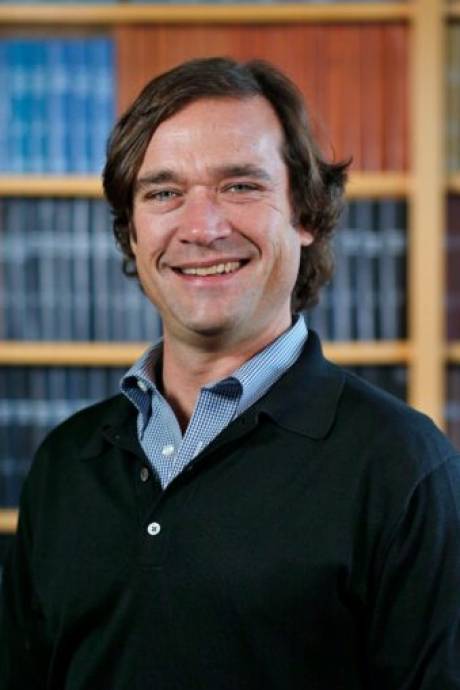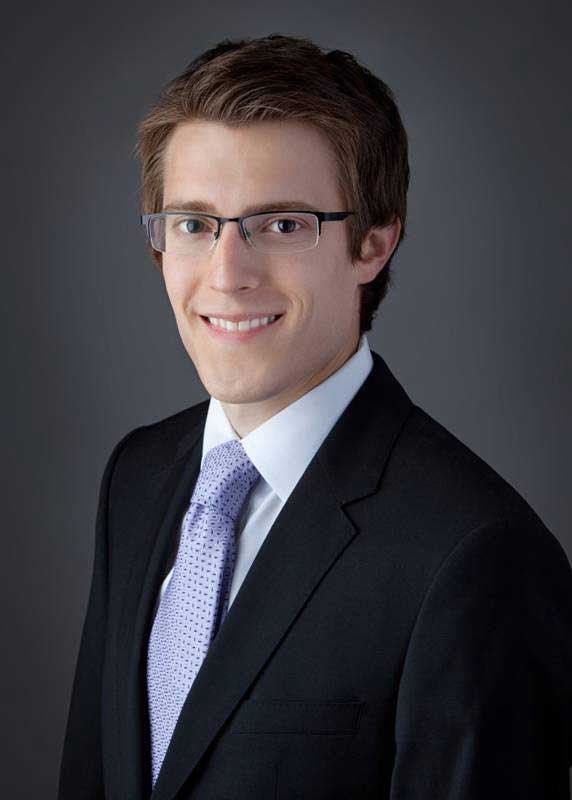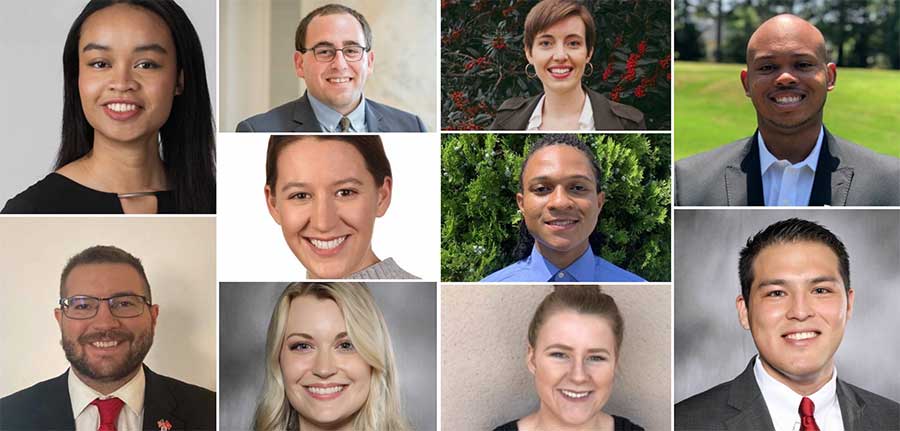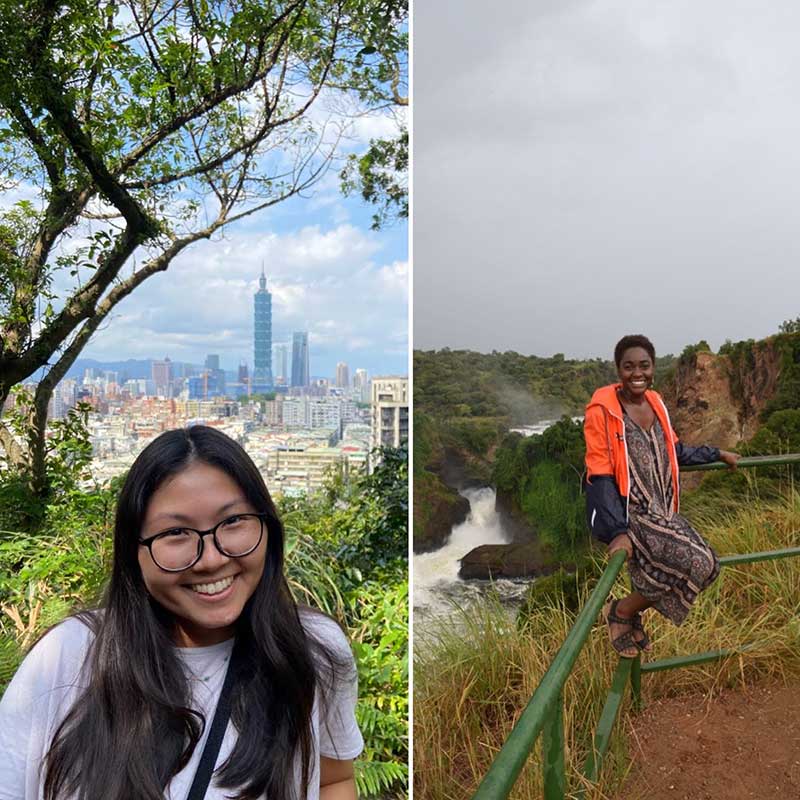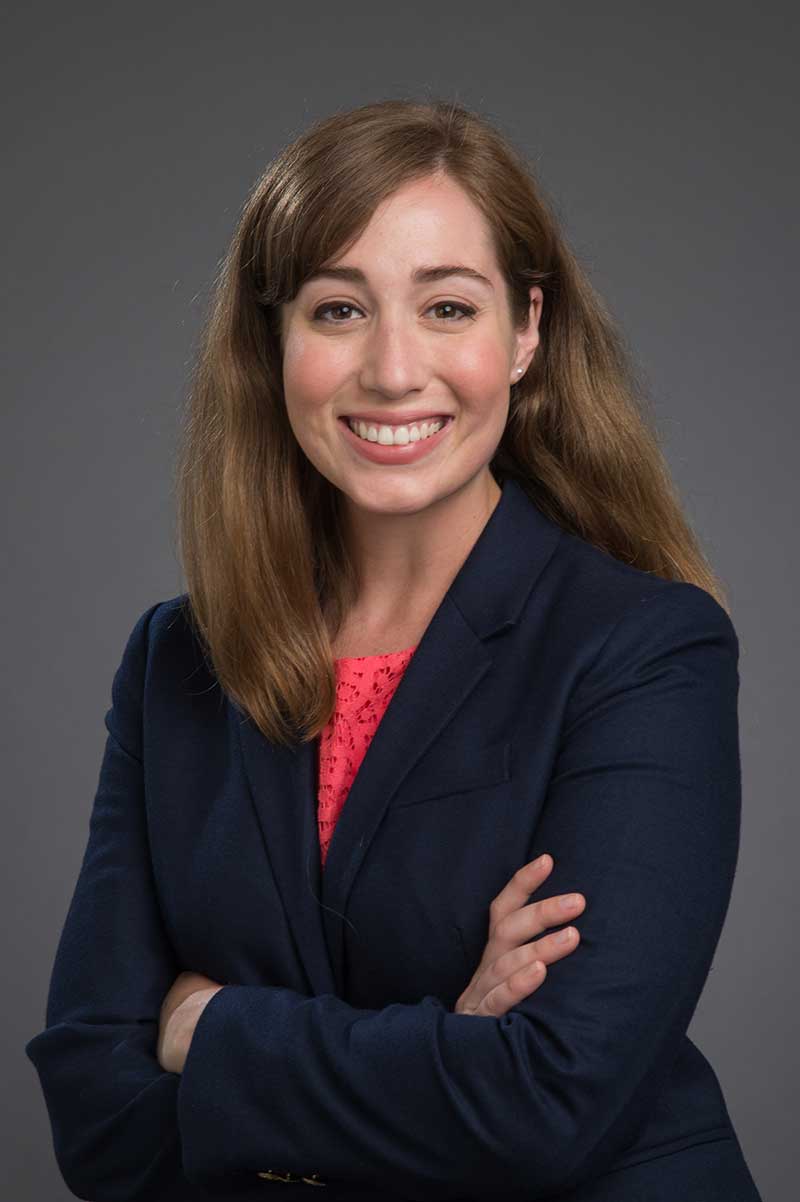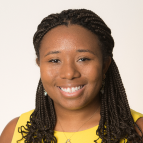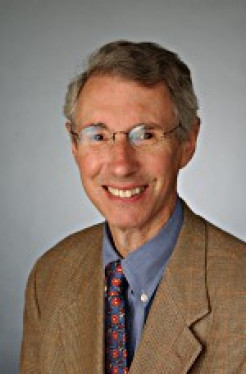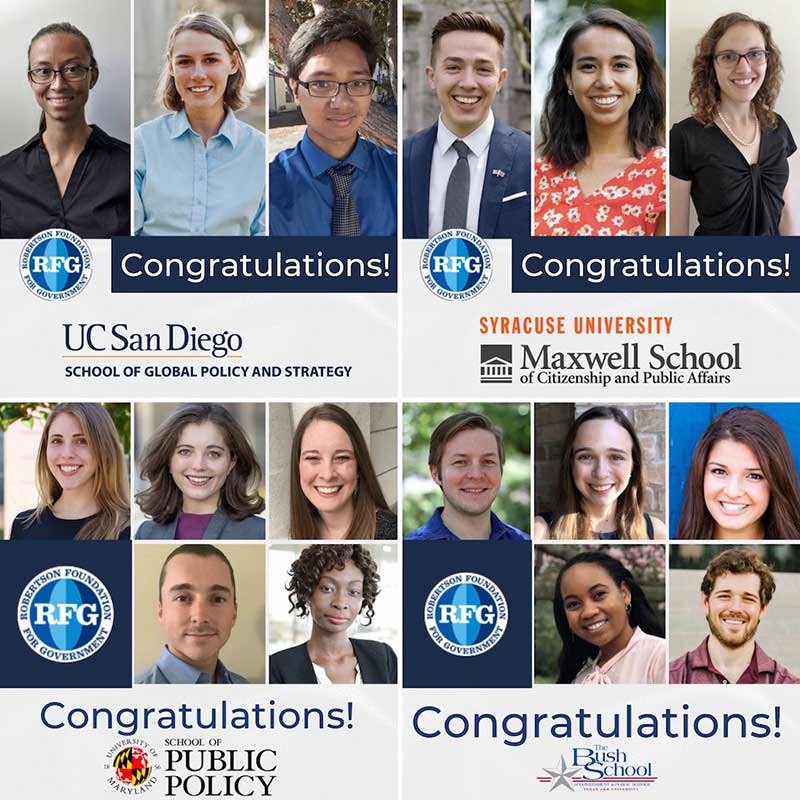
Congratulations to the graduating Class of 2022! These highly qualified, committed, globally-aware individuals are beginning careers dedicated to serving the public as leaders in international issues, foreign policy, and national security.
For some of these Fellows, deciding to pursue a career in public service doesn’t come as a surprise, as a passion for public service runs in the family.
Katherine Maxwell (Maxwell ‘22), who will begin her Presidential Management Fellowship (PMF) appointment as a Budget Analyst at the United States Agency for International Development (USAID), shares how her personal and family background contributed to her desire to work in public service. “My father was a probation officer, and my mother is a professor of public health who focuses on health disparities,” Maxwell states. “I decided that public service would be the best way to advance the issues I care about. I am highly mission-driven and am professionally fulfilled when my work makes a meaningful difference in peoples’ lives.”
Demetria Charlifue (Bush ‘22) is also a PMF and will begin her work in the USAID Middle East Bureau. Charlifue grew up overseas while her parents served on assignments in the Foreign Service.
“During my formative childhood years, I experienced momentous milestones, celebrations, and occasions alone while my parents served on assignments that separated my family more often than not. Though I experienced a different childhood than most of my peers, I took great pride in my parents’ contributions to a mission that was larger than my nuclear family,” Charlifue shares.
Phoebe DeVos-Cole (UMD SPP ‘22) is joining the U.S. Navy and preparing to enter Officer Candidate School in Rhode Island this Fall to pursue her dream of becoming a Navy pilot.
“I come from a public service-oriented family,” DeVos-Cole explains. “There are a number of veterans and service members in my family, and my parents have always been very community-oriented. I have always been a service-oriented individual, and this, coupled with my interest in government and policy, led me to pursue a career in the Federal Government and a Master of Public Policy.”
Robertson Fellows have already interned in positions across the government giving them some insight of what the government can offer.
Charlifue had the opportunity while at the Bush School to serve on the Department of State’s Afghanistan Task Force where she “supported the Department’s largest relocation efforts in history to support American citizens and our Afghan allies.”
For DeVos-Cole, RFG provided a connection with the U.S. Indo-Pacific Command, leading to a summer fellowship “which solidified my desire to pursue a career in the military and provided me with a plethora of professional connections and mentors.”
For those who hadn’t been exposed to the Federal Government prior to graduate school, RFG has provided tools and resources as Fellows pursued their work in this sector.
“Nobody in my family works for the Federal Government, and I came to Syracuse not knowing how to write a federal resume or knowing anyone in D.C.,” Maxwell recollects. “Through the Foundation’s programming and Alumni, I have gained the tools to navigate the federal hiring and interview process, become connected to a network of RFG Alumni from Syracuse and the other partner schools, and learned about government agencies and career paths I had not previously considered.”
As the graduating Fellows embark on this next chapter in their careers in public service, they are eager to learn and experience all the Federal Government has to offer.
“I am excited to work with and learn from people who are experts in their fields and similarly passionate about public service,” Maxwell explains. “I am also excited about the number of paths my career can take, as the Federal Government has so many agencies and opportunities to grow.”
For Charlifue, the most thrilling part of a career in public service comes from the impact that she can have on some of the most pressing challenges in a dynamic region. “I look forward to working under the leadership of USAID Administrator Samantha Power, problem-solving in a challenging region, being part of the COP2022 planning, learning from incredible development professionals and promoting the White House’s foreign affairs priorities in the Middle East.”
For DeVos-Cole, a career in the Navy is an opportunity to give back to her country and pursue a lifelong dream. “I am excited to work in a physically and intellectually demanding environment alongside other dedicated and service-oriented professionals. I’ve always wanted to fly, so being selected to become a Navy pilot is a dream come true.”
***
The Robertson Foundation for Government congratulates the Class of 2022! Below is a sample of some of the places where the Fellows are launching their careers in public service, dedicated to serving as leaders in international issues, foreign policy, and national security
The U.S. Department of Energy’s Office on Intelligence & Counterintelligence
U.S. Agency for International Development
U.S. Navy Officer Candidate School
Government Accountability Office
PhD Candidate at Baylor University
Center for Naval Analysis
TechCongress Fellowship
Voice of America
